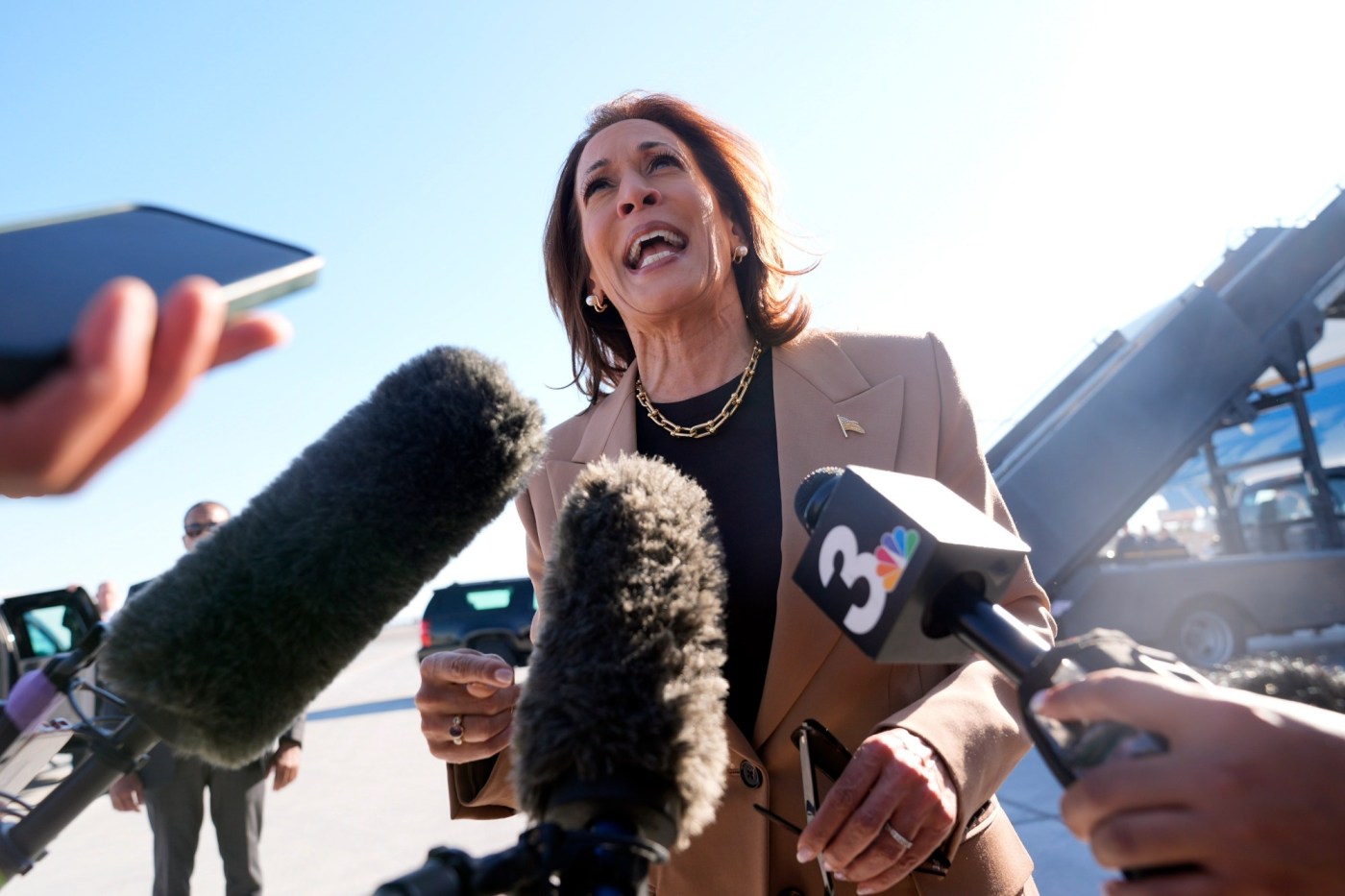
Schoen: What we learned from Kamala Harris’ media blitz
In recent weeks, Vice President Kamala Harris has clearly sought to address one of – if not the – biggest criticisms she’s faced since becoming her party’s nominee: her outright avoidance of the media, and sit down interviews in particular.
Within the span of a week, Harris made appearances on “60 Minutes,” Howard Stern, Stephen Colbert’s show, “The View,” and even the “Call Her Daddy” podcast that is popular with younger, female voters.
However, despite the multiple interviews, an overarching problem remains: voters have learned little to nothing about Harris’ policies, the plans she has for her administration, or how she would differ from President Biden.
Put another way, Harris is talking a lot, but saying little, aside from underscoring that she plans to run on the Biden-Harris administration’s record.
As such, voters could be forgiven for having very little insight into the type of president she would be, or how she’d represent a change from the past four years.
Ostensibly designed to fit with her “do no harm” media strategy, Harris’ skirting of the media in the early days of an unprecedented campaign made sense at the time.
But now, with roughly three weeks until election day, it is legitimate to ask whether this strategy of “winning by not losing,” or playing it safe and offering few groundbreaking details, will be enough to win.
Of course, Trump, at times, has also been unable to clearly state specific policies he would pursue during a second term. During September’s debate, when asked about his plans for healthcare reform, Trump could only muster “I have concepts of a plan.”
Further, in Harris’ defense she is being forced to walk an incredibly tightrope given her role as incumbent VP. She has taken strides not to stray too far from Biden and risk alienating his base, while attempting to make the point that she is not Biden.
That being said, in multiple interviews this week, Harris was pressed on what her policies would be and how she would address the many issues facing our country, particularly the two issues where Trump is the strongest – the economy and immigration.
Yet Harris’ vague answers gave Americans little clue as to how she would address them.
On “60 Minutes,” host Bill Whitaker asked whether Americans who are upset over the cost of groceries and blame the Biden-Harris administration are “wrong.”
Harris responded by touting the “thriving” macroeconomic measures before simply repeating that prices are too high and that she has a “plan” to bring down prices, but nothing on what that plan is.
Pressed on how she plans to pay for key parts of her economic agenda, in particular the improbability of her proposed corporate and personal tax increases, Harris gave no indication that she had an actual plan to enact a cornerstone of her own agenda.
And on immigration, specifically whether she and Biden did enough to curb the issue and how she’d address it, the closest Harris came to outlining her plans was “the policies that we’ve been proposing are about fixing a problem, not promoting a problem, okay?”
To her credit, Harris did – correctly – call out Donald Trump’s role in killing a bipartisan border bill, although that says little about how, as President, Harris would move forward.
Interestingly, Harris’ strongest point, and where she most outlined her policies was on the war in Ukraine. She flatly rejected the idea of negotiating with Putin without Ukraine at the table, drawing a clear distinction between herself and Donald Trump.
The “60 Minutes” interview may have been the most in-depth, but it was Harris’ interview on “The View” that may have the most political ramifications.
Asked on if there’s anything she would have done differently than Biden, Harris answered, “there is not a thing that comes to mind.” While cognizant of the awkward position she is in, the problem for Harris is that voters have consistently disapproved of Biden’s handling of key issues.
Indeed, Biden’s approval on the economy (40%) is net-19 points underwater, and his approval on immigration (35%), inflation (36%), and foreign policy (39%), are even lower per RealClearPolitics polling average.
Moreover, less than 3-in-10 (28%) say the country is on the “right track” while nearly two-thirds (62%) say we’re on the “wrong track” according to Yahoo News polling.
Quite simply, Harris’ insistence that she would have done nothing differently than Biden, aside from displaying loyalty, likely did little to convince the majority of voters who are unhappy with the state of the country – and Biden’s handling of it – that Harris is the right choice.
The Trump campaign has already told Axios that they plan to spend heavily promoting Harris’ words. “Expect to see this clip every single time you turn on the television between now and Nov. 5” Axios reported one senior Trump ally as saying.
Along with the two more substantive interviews, Harris had three lighter ones. She sat with Howard Stern, Stephen Colbert, and the “Call Her Daddy” podcast, where, in front of much friendlier crowds and hosts, Harris returned to the strategy of “vibes” and “joy” that were the foundation of her campaign throughout the summer in the wake of Biden’s withdrawal.
That strategy, essentially turning the presidential race into a popularity contest, figures to favor Harris over Donald Trump, and it has had some success thus far.
She now leads Trump by 2-points (46% to 44%) in terms of which candidate most “represents change” per New York Times/Siena polling. While still within the margin of error, it is worth noting given that Harris is the incumbent VP and has made it abundantly clear since becoming nominee that she aligns with Biden on many issues.
In what figures to be an extremely close election, and in our deeply polarized political environment, Harris’ “do no harm” strategy may be enough to put the VP over the finish line.
However, it is also just as likely that in the election’s final days, voters focus on how they feel each candidate will address the key issues facing the country.
Ultimately, despite the media blitz, there is still much voters don’t know about Harris’ plans for the economy, the border, foreign policy, and more. Nor do voters unhappy with the last four years know how the next four would be any different.
Douglas Schoen is a longtime Democratic political consultant.


